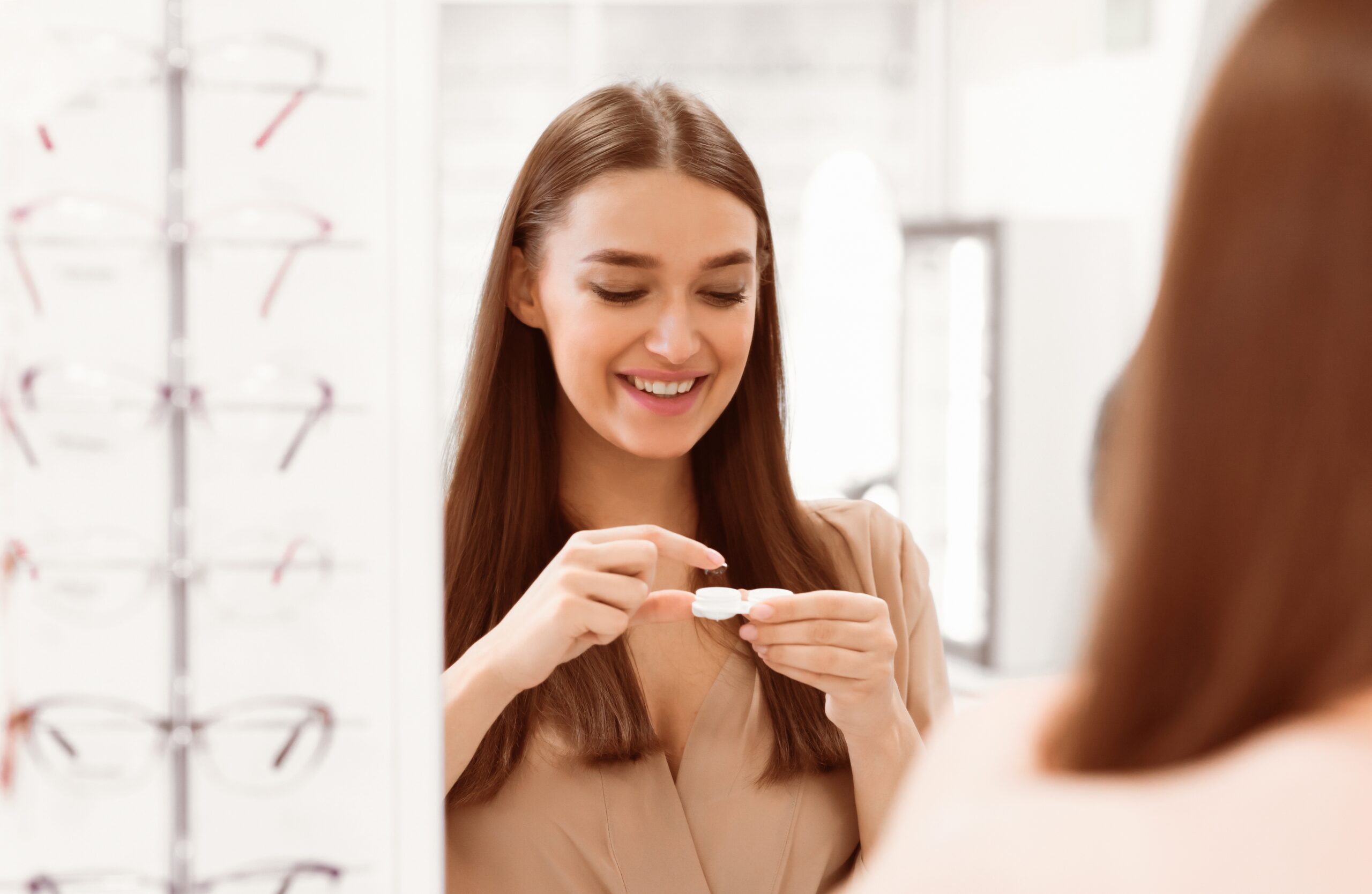Home » How to Take Care of Your Contact Lenses
Wearing contact lenses can be a convenient and effective way to improve your vision, but improper care can lead to serious eye health issues. From infections to long-term damage, the risks of poor lens hygiene are well documented. Fortunately, with consistent and careful routines, you can enjoy the benefits of contact lenses while protecting your eyes from harm.

Contact lenses sit directly on the surface of your eye. This creates a direct pathway for bacteria, fungi, and other microorganisms to enter the eye if lenses are not kept clean. Improper lens care can lead to conditions like keratitis (corneal inflammation), corneal ulcers, and serious infections that may cause vision loss.
Many of these complications are preventable through proper hygiene and responsible habits. That’s why your daily contact lens routine matters just as much as the lenses themselves.
Before touching your contact lenses, always wash your hands thoroughly with soap and water. Dry them with a lint-free towel. This simple step is one of the most effective ways to prevent the transfer of germs and dirt to your eyes.
Avoid moisturizing soaps or hand sanitizers that contain oils or lotions, as these can leave a film on your lenses and reduce clarity or increase irritation.
Never use tap water, saliva, or homemade saline solutions to clean your lenses. Always use a sterile, commercially prepared solution recommended by your eye care professional. These solutions are specifically formulated to disinfect lenses and remove buildup safely.
Here are two quick-reference lists to help you stay on track:
Even just a few hours of overnight wear in non-approved contacts can increase your risk of corneal hypoxia—a condition caused by reduced oxygen reaching the cornea. This can lead to discomfort, blurred vision, and a higher chance of infection.
Only wear lenses overnight if they are specifically designed and prescribed for extended use, and even then, make sure you follow up regularly with your eye doctor.
Your contact lens case can harbor bacteria if not replaced regularly. Even if it looks clean, invisible microbial buildup can pose a serious risk to your eye health. Mark your calendar to change your case at least every 3 months, or sooner if it becomes cracked, cloudy, or difficult to clean.
If your eyes become red, irritated, watery, or your vision changes unexpectedly, take your lenses out immediately and contact your eye care provider. Never try to “wait out” a problem when it comes to your eyes. Early intervention can prevent more serious complications.
Contact lenses offer freedom and flexibility, but only when paired with proper care. By committing to a daily routine that includes clean hands, appropriate cleaning solutions, and responsible wear, you dramatically reduce your risk of infection and protect your long-term vision.
The team at Tennessee Eye Care is here to help you stay informed and protected. If you have questions about your contact lenses or are due for an exam, schedule a visit with us today. Your eyes will thank you.